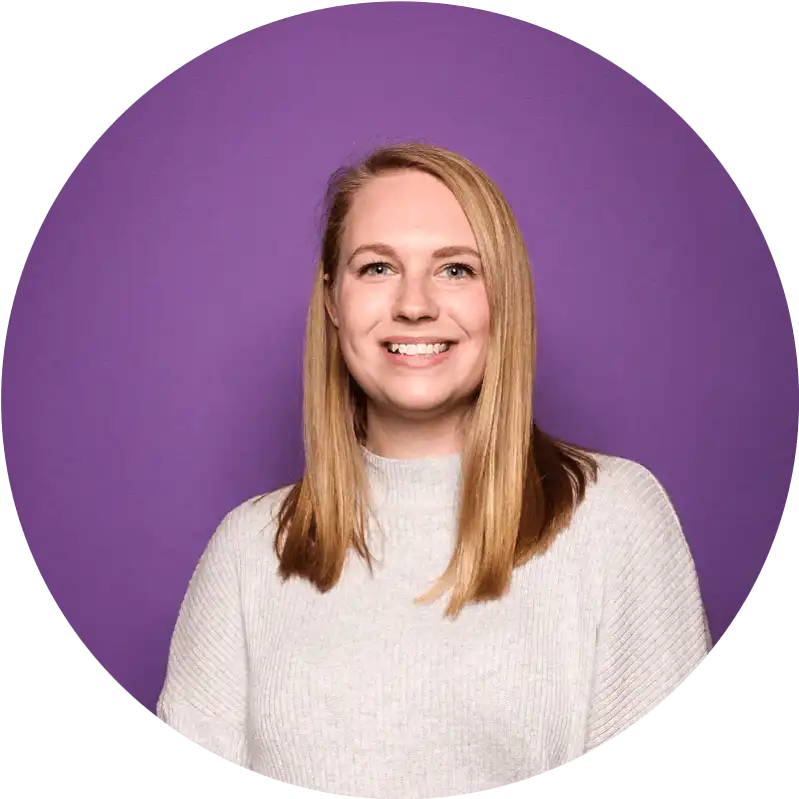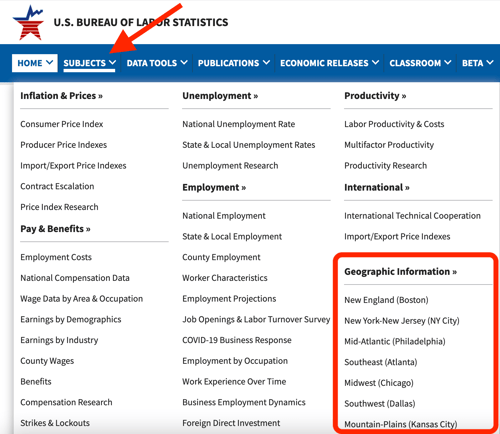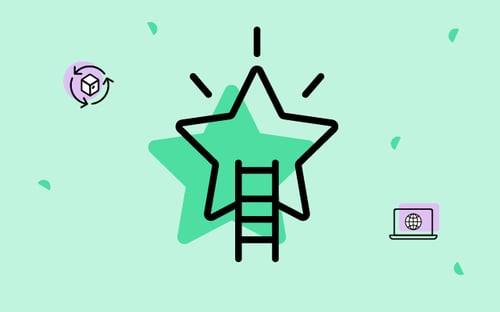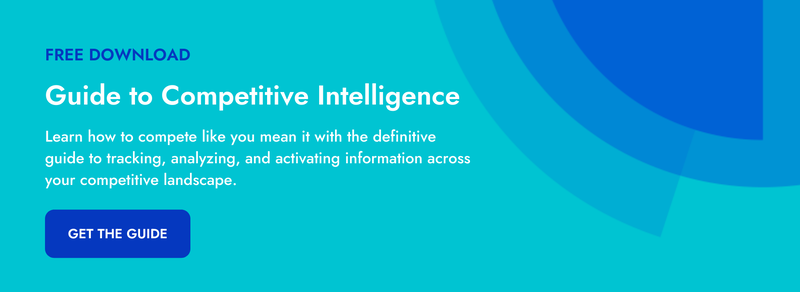 Crayon's Competitive Intelligence Spotlight is an interview series where we chat with intelligence professionals to get a glimpse into their careers and gain unique insight into competitive strategy. In this edition of the Competitive Intelligence Spotlight Series, we shine the light on August Jackson, Senior Director of Market and Competitive Intelligence at Deltek.
Crayon's Competitive Intelligence Spotlight is an interview series where we chat with intelligence professionals to get a glimpse into their careers and gain unique insight into competitive strategy. In this edition of the Competitive Intelligence Spotlight Series, we shine the light on August Jackson, Senior Director of Market and Competitive Intelligence at Deltek.
ED: What is your role?
AJ: My title is Senior Director of Market and Competitive Intelligence at Deltek. My team and I bring an objective, outside-in perspective to help our leaders make decisions with evidence and foresight, and help our sales teams win by selling on the unique value Deltek creates for our customers.
ED: What does the company do?
AJ: Deltek’s mission is to enable project-based businesses and power their project success so they can better serve their customers. We deliver software and solutions that our customers use to deliver projects on time and meet or exceed their performance and financial objectives.
ED: Tell me a little bit about your career path. What was your first job, and what happened along the way to bring you to where you are now?
AJ: I came out of university enthusiastic for the early consumer Internet. My first full-time job was in Product Development on the consumer dialup Internet (remember dialup?) product at MCI (remember MCI?). I didn’t know CI was a thing when I started. My team had made a business case for a development so our customers would be able to create and host their own personal web sites. Management was on board with the idea, but wanted evidence that this capability closed a gap with our competition and would make a difference in our KPIs. My boss turned to me and said, “You’re going to build that case.” I did a lot of research and presented our findings. We got the investment we needed.
My next job was in Product Marketing at MCI’s joint venture with British Telecom (BT), Concert. They had a formal CI team, and I was a voracious consumer of their content. The team lead kept saying, “You should come work for me.” After a year or so I took her up on the offer. I learned a lot from her and the rest of the team at Concert and subsequently at BT.
I’ve been in CI, market intelligence, and strategy roles since 2000 with some sidelines into Product Operations and Business Development. I spent a few years at a consulting firm helping government agencies understand and apply competitive intelligence methods to national security challenges.
ED: What do you think is the biggest misconception about competitive intelligence?
AJ: Many people assume CI is a euphemism for industrial espionage. I like to explain the ethical and systematic nature of CI, that organizations make a big information footprint on the world, and someone like me knows how to pay attention and make sense of that footprint. I can continue by describing how we use predictive models like scenarios and war games to make smart bets about the future.
ED: What skills do you think are necessary for someone who works in competitive intelligence?
AJ: A CI professional has to have a healthy sense of curiosity. Patience and humility are valuable characteristics as well.
Research and analysis skills are necessary though not sufficient. The ability to assess stakeholder and organization needs is critical – especially those unspoken or unrecognized needs. Strong communications skills are crucial also.
If you intend to build a career in CI leadership, you must have the skills necessary to build strong relationships based on mutual respect and accountability. If you’re doing your job well, the appetite for what you do will always be more than you can deliver, so the ability to prioritize and align with the organization’s mission is critical.
ED: What’s the biggest challenge you’ve faced in the competitive intelligence process?
AJ: The biggest challenge today is making sense of all of the information that we have available to us. The fundamental challenge for CI switched in the early 2000s from a model of information scarcity to information abundance. Search engines, online news, RSS, social media, and big data all contribute to the overwhelm. Cutting through it all and making sense is the state of the art.
ED: At what stage do you think a company should begin investing in competitive intelligence?
AJ: Companies benefit greatly from a clear-eyed assessment of the competitive landscape from their inception. Most successful entrepreneurs have a sense of the landscape and see new customer needs or new ways to meet customer needs that don’t exist. I regularly present CI fundamentals to entrepreneurs and small business owners in local Chambers of Commerce. These leaders clearly grasp the value of these sorts of insights.
ED: What are the biggest changes you’ve seen over the last 5–10 years, and where do you see it going?
AJ: I’m excited to see formal market and competitive intelligence programs emerge in smaller and less mature organizations. This is a practice that was once confined to the largest and most mature companies. This development gives me hope for the future of the profession, which is great because I love what I do and I see the value this role delivers to our organizations.
ED: What is something you wish you knew earlier in your career?
AJ: I wish I had prioritized the "soft skills" such as communication, relationship building, and a needs assessment that went beyond what was simply verbalized. I've done a lot of work in the last 10 years or so on these skills. It’s like Dorothy in The Wizard of Oz when she steps into the Technicolor world when you incorporate these skills into your process and build a practice around relationship and communication.
ED: If you were given a free trip to anywhere in the world tomorrow, where would you go?
AJ: New Zealand is my dream trip! I've never been, and it's been my dream to visit ever since I saw the Lord of the Rings trilogy. It looks like an amazing country. My husband and I love to hike, bike, and run, and could explore the natural beauty forever. The cities look like a great time as well.

Related Blog Posts
Popular Posts
-
 How to Create a Competitive Matrix (Step-by-Step Guide With Examples + Free Templates)
How to Create a Competitive Matrix (Step-by-Step Guide With Examples + Free Templates)
-
 Sales Battlecards 101: How to Help Your Sellers Leave the Competition In the Dust
Sales Battlecards 101: How to Help Your Sellers Leave the Competition In the Dust
-
 The 8 Free Market Research Tools and Resources You Need to Know
The 8 Free Market Research Tools and Resources You Need to Know
-
 6 Competitive Advantage Examples From the Real World
6 Competitive Advantage Examples From the Real World
-
 How to Measure Product Launch Success: 12 KPIs You Should Be Tracking
How to Measure Product Launch Success: 12 KPIs You Should Be Tracking





%20(1).png?width=500&name=CI%20Strategy-CI%20Audit%20(1)%20(1).png)